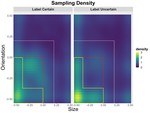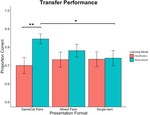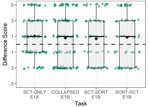John D. Patterson
Postdoctoral Scholar
Pennsylvania State University
About
John Patterson is currently a postdoctoral scholar in the Department of Psychology at Pennsylvania State University. He earned his Ph.D. from Binghamton University in 2019. He is interested in how concepts are acquired and represented, how these representations are leveraged for other tasks (e.g., decision making, inference), and how insights in each of these areas can advise applications to education and machine learning. He uses behavioral, computational, and (soon) functional imaging methods to address these questions.
Interests
- Category learning
- Representation
- Comparison
- Analogy
- Learning mode
- Semi-Supervised learning
- Computational modeling
- Machine learning
Education
-
PhD in Cognitive Psychology, 2019
Binghamton University
-
MS in Cognitive Psychology, 2016
Binghamton University
-
BS in Psyc - Mind, Brain, & Behavior, 2012
Colorado State University




